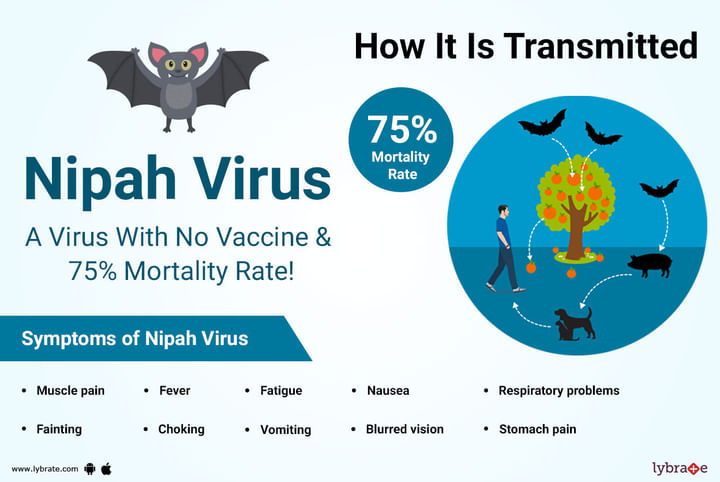Nipah - A Virus With No Vaccine & 75% Mortality Rate!
The Nipah virus may be little known, but scores extremely high when it comes to risk. The virus was first reported in Malaysia in 1998 and is no stranger to India. Indeed, it has struck India and Bangladesh multiple times since, leaving behind a toll count of nearly 280 infections and 211 deaths. And now, it’s back!
Nipah virus has already claimed over 9 lives in Kerala in past one month. Three people have tested positive for the virus over the past two weeks. And over 25 victims carrying its symptoms have been hospitalized.
Here’s what you should know about the Nipah menace.
- Indications of a possible infection are fever and respiratory trouble and confusion. Flu-like symptoms have also been witnessed in some cases. The severity is too high and can progress to a state of coma.
- Incidentally, this is a virus that can re-activate itself inside the patient’s body months or even years after the first strike. In such cases, the host can develop lasting health conditions such as stubborn convulsions and personality changes.
- The way to stay out of harm’s way is to avoid exposure to infected animals, such as pigs and bats, and not consuming raw date palm sap.
- Transmission of the virus to humans takes place via direct contact with infected bats, infected pigs, from other NiV infected people and by consuming food which is either infected or has come in contact with animals which are infected.
Symptoms of Nipah Virus:
- Muscle pain
- Fever
- Respiratory problems
- Nausea
- Fainting
- Stomach pain
- Choking
- Vomiting
- Blurred vision
- Fatigue
The incubation period for the symptoms to develop for this virus is from 5 to 14 days and once the diagnosis is done the treatment must be given immediately. The Nipah virus can lead to the following in patients
Severe Lung condition
Asymptomatic infection
Inflammation of brain tissues
Preventive measures:
- Stay away from people who are already infected with Nipah virus or NiV
- In case, you have to touch the person then make sure you wash your hands from time to time.
- Utensils, clothes or any other items used by the person infected with the virus should be kept separately.
- If you are transporting the body of a person who has died of this virus, then make sure to cover your face, especially the nose.
Treatment for Nipah Virus:
No vaccination or medicine is available for treating people or animals with Nipah virus. The only treatment available is intensive supportive care. So visit a hospital as soon as you see the symptoms.
Not surprisingly, the Nipah virus ranks in the list of Top 10 priority diseases that the World Health Organization (WHO) has earmarked as possible candidates for the next major outbreak. Though treatment is currently limited care, efforts are on by the government and the medical community to develop preventive measures to combat the spread of the Nipah virus.


+1.svg)
